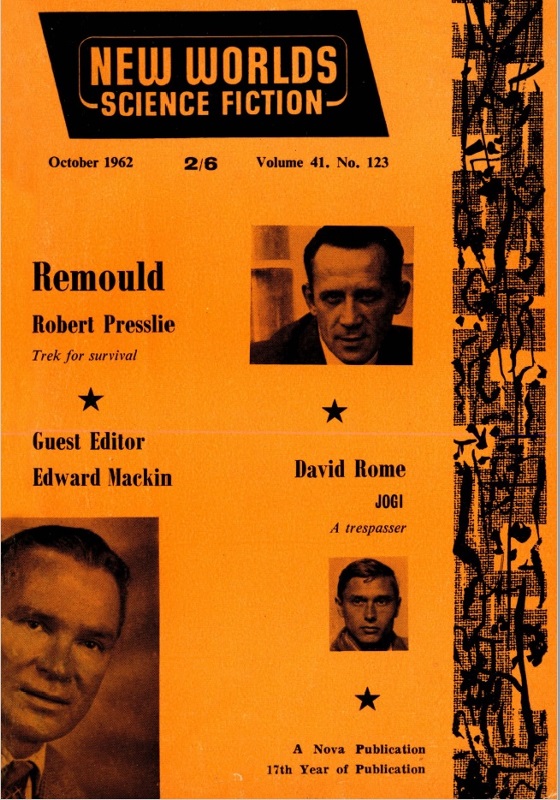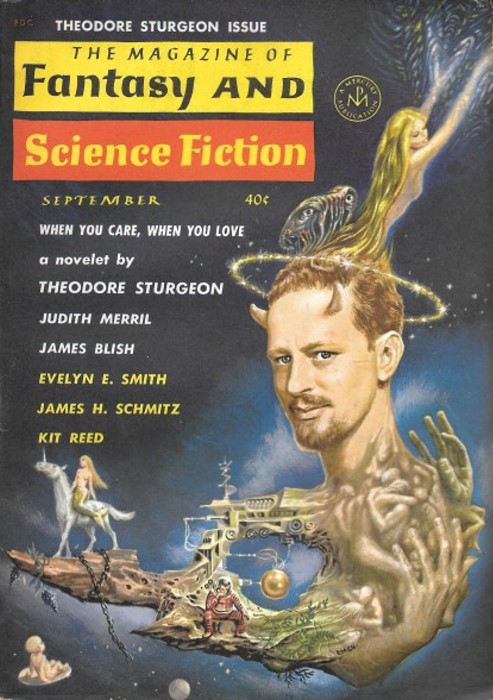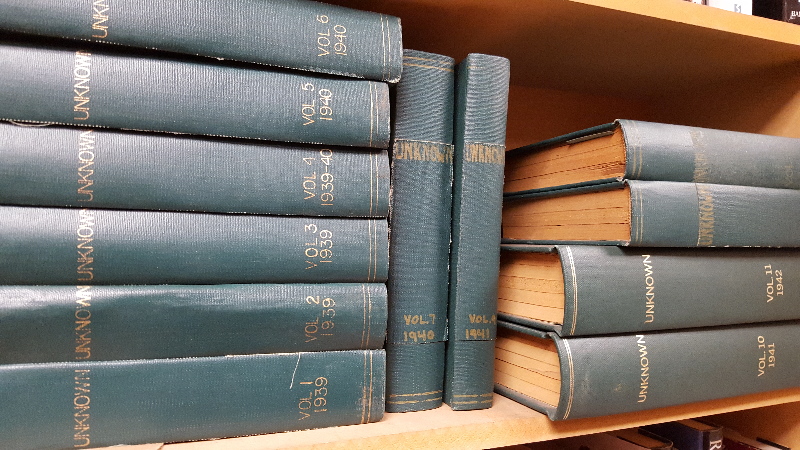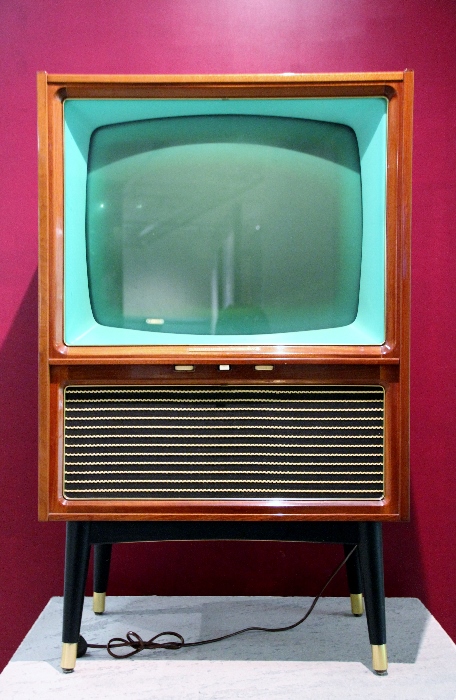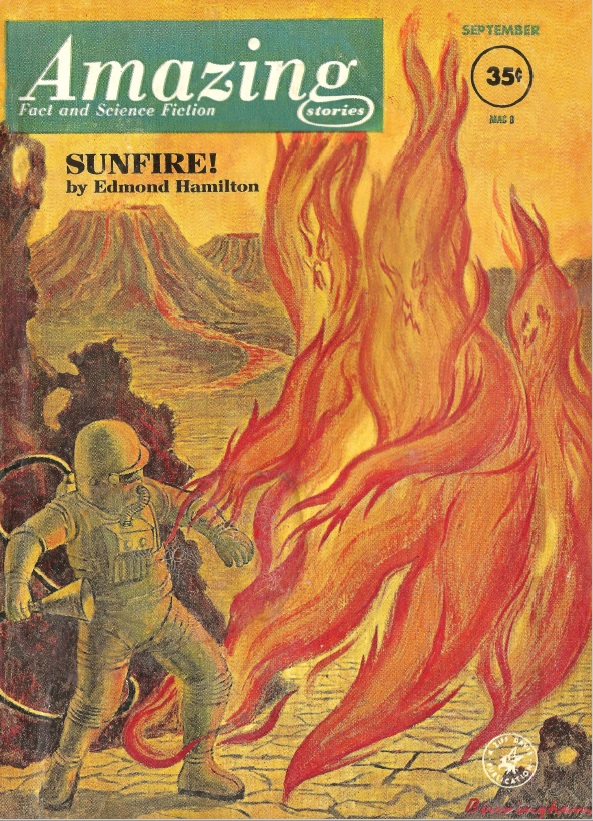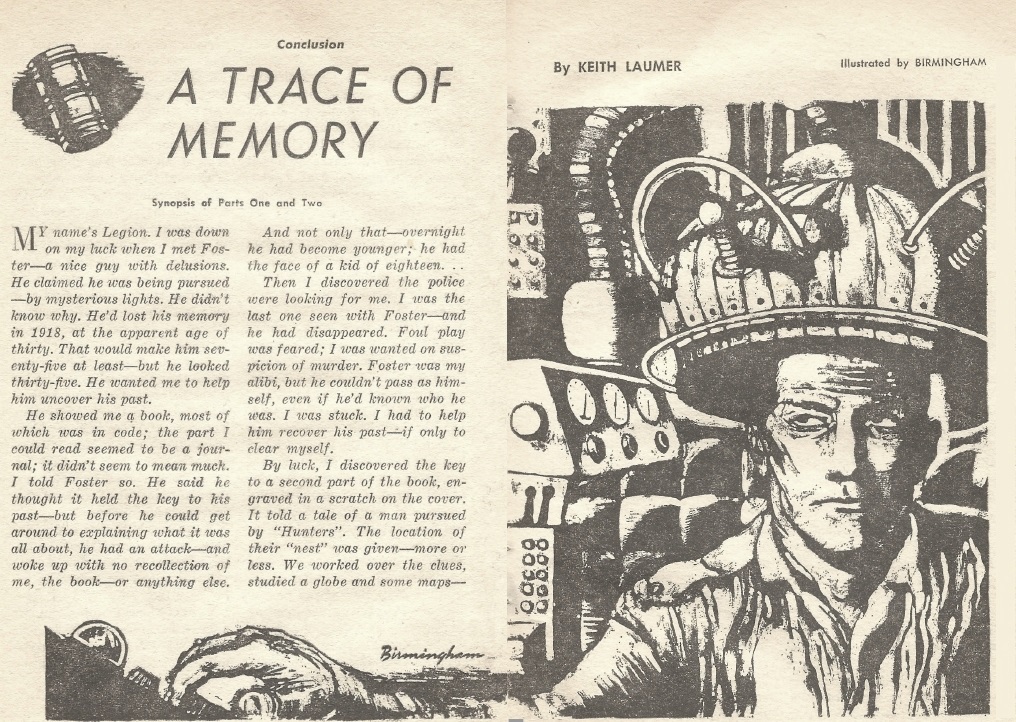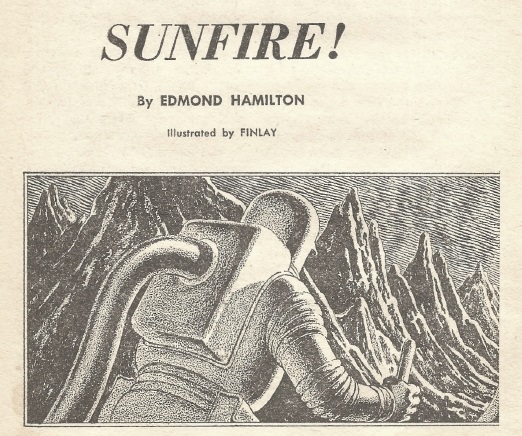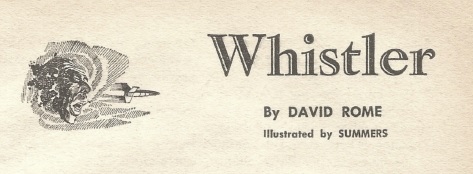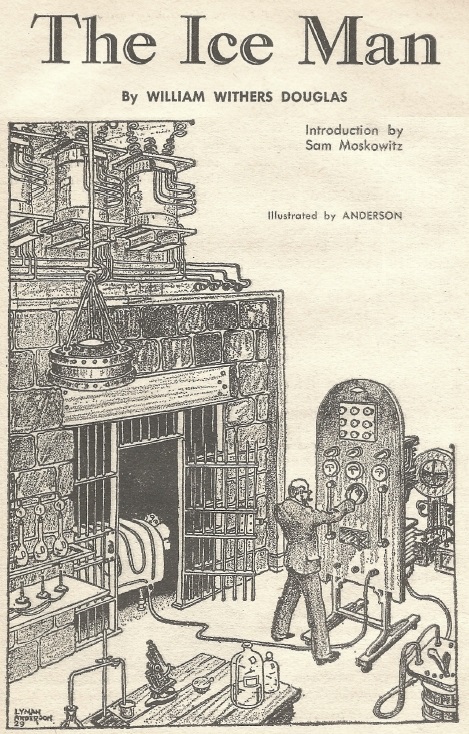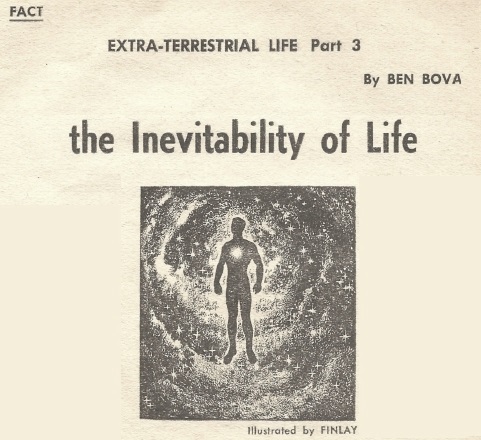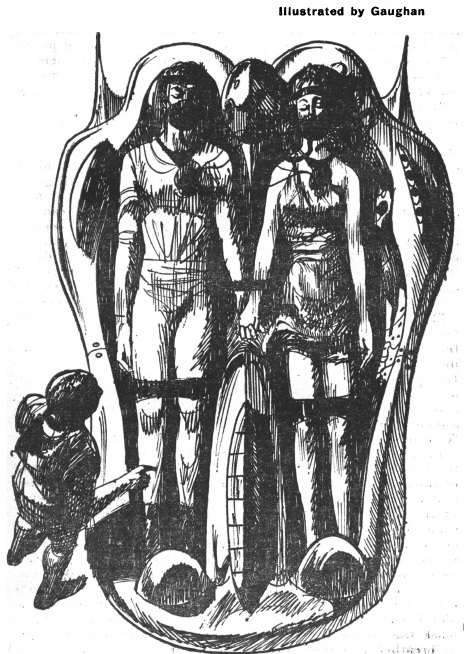[if you’re new to the Journey, read this to see what we’re all about!]

by John Boston
Space! Mankind’s dream! Well, some people’s dream. A lot of us seem to be more concerned with making a living, taking care of families, trying to keep a straight face at school, and other highly terrestrial activities. But even in this small town in the boondocks, people mostly seem to take pride in the first human ventures off the planet, though you do hear the occasional grumble that all that money could be better spent right here on Earth.
I wasn’t so confident a couple of years ago, when I witnessed the second most remarkable thing I have seen here. (First place is claimed by the man I saw walking a raccoon on a leash. Raccoons do tend to have their own agendas.) I was downtown on a Saturday morning, which is when the farmers come into town to take care of their business. The banks are open then, which I am told is not the case in larger cities. The farmers come in their cars, their pickup trucks, and in some cases their horse-drawn wagons, all parked around the courthouse square. On this Saturday, a man was preaching from the back of one of the wagons . . . against the evils of space travel. “If Man reaches out to touch the face of God’s Moon,” he thundered, “God will BLAST HIM FROM THE EARTH!” But no one paid any attention, and I’ve heard nothing further about his prophecy.

I was reminded of this episode by the cover story of the October Amazing, Poul Anderson’s Escape from Orbit. It’s another near-space epic like Third Stage from the February issue, also, like that one, illustrated by a Popular Mechanics-style cutaway depiction of guys in a space vehicle. The situation: meteor destroys spacecraft, crew escapes in lifecraft without propulsion, now they’re stuck in Moon orbit with no one close enough to rescue them, and a solar flare due in 48 hours. The only bright spot is that the ship’s big, heavy main air tank is nearby and retrievable, giving them enough to breathe until they get killed by the flare. The air tank—that’s it! In a paroxysm of arithmetic (work shown only at the end), the protagonist, second banana at Orbital Command on Earth, sees the solution.
This five or six pages’ worth of story is stretched to 20 by extensive detail about our hero’s home and inner life, including his unsatisfactory wife, the woman he wishes he had married, his physical deterioration (he’s 34) and how he feels about it, his career anxieties, etc. It takes five paragraphs to get from the early morning ringing phone to actually answering it, and several pages to get him out the door and on the road to Base. Maybe somebody told Anderson he needed more human interest in his stories, or maybe he hoped to sell this one to Cosmopolitan (well, no, not with the complaints about the wife) or the Saturday Evening Post. Whatever. The whole thing is forced and clumsy. Two stars.
This month’s “Classic Reprint” is The Young Old Man by Earl L. Bell, from the magazine’s September 1929 issue, which serves mainly to show how boring a story can be even if short. Campers in the Ozarks encounter a storekeeper who looks about 45 but he’s obviously ancient, just look at his eyes. The revelation is that immortality, which he received via thaumaturgist in the 11th Century, isn’t what it’s cracked up to be. How fortunate we are that most SF writers these days at least try to develop their ideas, rather than just laying them out like a dead fish on ice. One star.
Things look up a bit after that one. Ben Bova has taken a break from his article series and contributed a short story, Answer, Please Answer , about a couple of guys wintering in Antarctica (draftees in a war with the Soviets), who by coincidence are both astronomers. So in their considerable spare time, they look for extraterrestrial signals from variable stars, and boy do they find them and are they sobering. This is as much a one-gimmick story as Anderson’s, but it’s much better done by this guy with a decade’s less experience writing fiction. It builds up smoothly, dropping in just enough background on the characters to make them characters, comes to its revelation, then stops. Three stars for unpretentious cleverness and competence.

Jeff Sutton’s After Ixmal is readable but silly: a super-computer develops consciousness, albeit the consciousness of a petulant child, tricks humanity into destroying itself, lords it over the dead Earth for eons until it discovers a rival consciousness, and goes to war with it, just because. As SF it’s barely thought through at all, and as fable or myth or whatever it lacks the necessary sonority, gravitas, etc. Two stars.
The versatile Robert F. Young, who knows so many ways of being entirely too cute, is back with Boy Meets Dyevitza. Captain Andrews of the United States Space Force, who thinks he is the first Earth-person on Venus, encounters Major Mikhailovna of the USSR, who is washing her stockings in a stream, having beaten him there the previous day. As for conditions on Venus, hey, this is science fiction, so: “The data supplied by the Venus probes during the early 60’s, while inconclusive with regard to her cloud-cover, had conclusively disproved former theories to the effect that she lacked a breathable atmosphere and possessed a surface temperature of more than 100 degrees Centigrade, and had prepared him for what he found—an atmosphere richer in oxygen content than Earth’s, a comfortable climate [etc.].” See? Science! Extrapolation! [And complete bollocks — Young should know better.]
Then the human indigenes show up, wearing brass collars; shocked by the Earthfolks’ naked necks, they later kidnap them and put brass collars on them, which can’t be removed by human tools and prevent them from getting very far from each other. They are married, Venusian style. But they discover they don’t really mind, and (to summarize brutally) the folks back home say “Awwww,” and—never mind. Two stars for Young’s usual professional execution, heavily discounted for cloy.
The fiction contents are rounded out by Pattern, the second story in the SF magazines by the very youthful Robert H. Rohrer, Jr. (b. 1946), less slick but more interesting than Young’s polished artifact: a life form consisting of organized electricity tries to take over and consume the energy flows of human spaceship pilot Captain Brenner. This is not exactly an original plot—see, or remember, van Vogt’s The Voyage of the Space Beagle—but it’s much better worked out than, say, After Ixmal, with a nasty twist at the end. Three stars and good if not great expectations for this new writer.
Sam Moskowitz’s SF Profile is The Secret Lives of Henry Kuttner—not one of his best. Per his custom, he describes Kuttner’s early pulp stories in detail and gives very short shrift to his later and better work, emphasizing his pseudonyms and what Moskowitz thinks is his work’s derivative aspects (sometimes rightly and sometimes decidedly not), and summarizing his career: “Lured by opportunism, suffering from an acute sense of inadequacy, he refused to stand alone, but leaned for support upon a parade of greats: H.P. Lovecraft, Robert E. Howard, Stanley G. Weinbaum, A. Merritt, John Collier, A.E. van Vogt, and, of course, C.L. Moore.” This about the man who by the early ‘40s had become one of the most capable writers in the field, who produced a disproportionate number of the best-remembered stories of the ‘40s and early ‘50s, and whose work was pored over by the likes of Sturgeon and Bradbury. Terrible analysis, terrible judgment. Two stars, being generous.

Frank Tinsley, it turns out, isn’t gone. He’s here with The Nuclear Putt-Putt, an article about Project Orion, a proposed gigantic spaceship to be powered by a succession of nuclear bombs. Small ones, to be sure, but still. Especially since this insane behemoth is apparently supposed to launch from Earth. Can we say radiation? Fallout? Not a word about how these are to be contained. Two stars for overlooking a rather obvious problem.
And Benedict Breadfruit . . . is gone as of this issue. His last bow is actually reasonably clever . . . unlike most of its predecessors.
So the magazine bumbles along. The wearying thing is not how bad its worst stories are, but that the top of its range is still readable competence and little more.




















